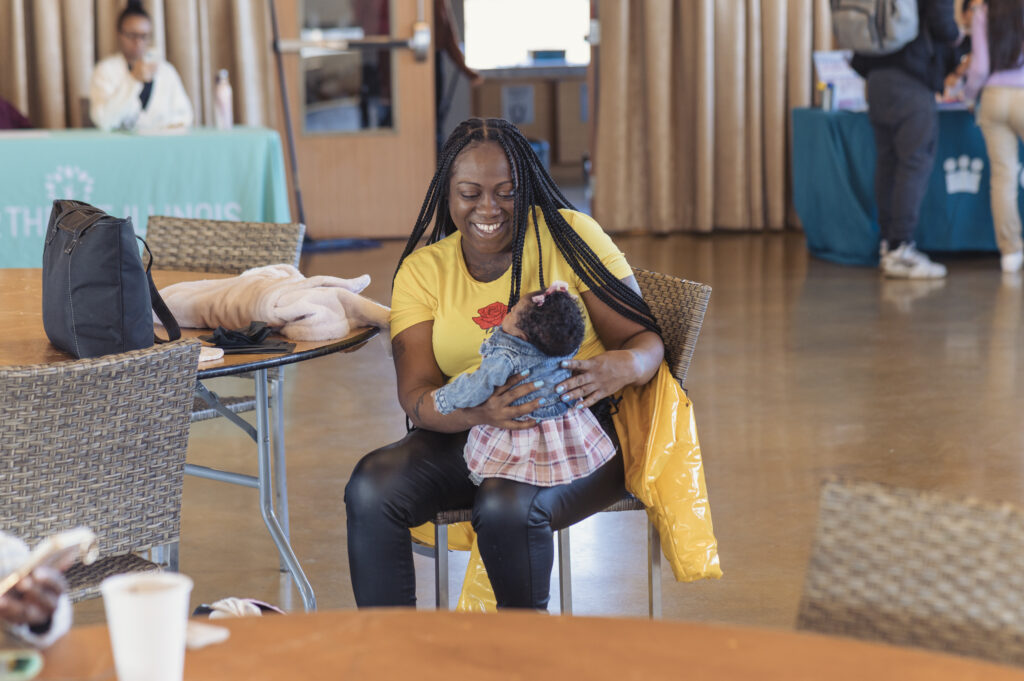
Last month, EverThrive Illinois hosted an in-person Birth Equity Listening Session on the West side of Chicago. This event was put together by our Community Engagement Director, Tamela Milan-Alexander, who is also the lead behind The Gathering campaign. For the past few months, Tamela has been hosting listening sessions virtually and in-person in the Southern region of the state, intending to expand The Gathering resources to other parts of Illinois. The purpose of these listening sessions is to convene individuals in the health care space and community members to give them an opportunity to share their input on maternal health and mental health care in their region. We want to ensure that our campaigns and resources are helping and that we continue uplifting community voices.
At the listening session in Chicago, which was held in the North Lawndale community, a few vendors were present to give out resources and information to parents/families in attendance. The event was centered around a presentation by Tamela and Elizabeth Gonzalez, Associate Director of Birth Equity. The presentation provided information on The Gathering, and then there was a section with questions that allowed for discussion. The questions were regarding maternal and mental health in the community, mainly focused on accessibility and quality of care.
Our communications coordinator, Jordyn Hester, explains how the discussion went: “What was so amazing about the listening session is that people felt comfortable enough not only to voice their concerns but also to share personal experiences and cultural perspectives. I think these conversations are important for our work and for them to know that they aren’t going through this alone.”
This discussion brought up how services and resources are not within a reasonable distance for people to access; if they are, people aren’t aware of it. People also brought up how even if they can access these services, they feel like they’re just treated like a number. There was a great point raised about how stigmas around mental health and substance abuse could prevent individuals from receiving care. The importance of community members passing along information was also discussed. Everything that was said was considered, and we hope to use the concerns and stories of people in the community to create change so that health equity becomes a reality.
